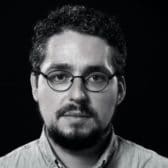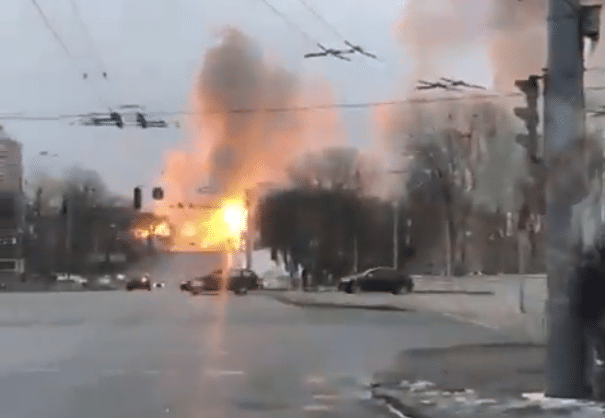
Editor’s Note: The immediate reporting after the shelling of Babyn Yar indicated that the memorial site was significantly damaged. Journalists have since been able to independently verify that the memorial is still in tact despite the shelling.
A ravine outside of the Ukrainian capital Kyiv known as Babyn Yar (or Babi Yar in Russian) saw some of the most horrific violence and atrocities ever committed against the Jewish people during the Holocaust.
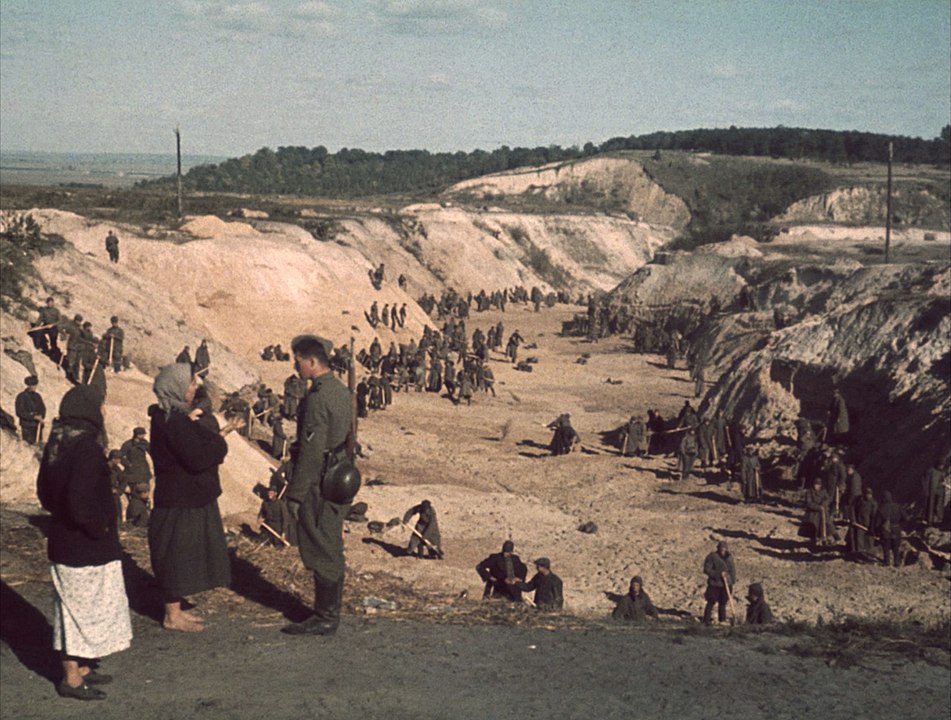
In two days 33,771 Jews were lined up in quickly dug pits and methodically executed or buried alive by Nazi forces. Later an additional 100,000–150,000 Jews, Soviet prisoners of war, Romanis and Ukrainian Nationalists were murdered at the site. Babyn Yar was the largest massacre of Jews in a single event during World War II and is the largest mass grave in Europe of Holocaust Victims.
Russia shells Babyn Yar Memorial
Multiple looks on the attack on the Babyn Yar Holocaust Memorial site.https://t.co/TslKITBAXp pic.twitter.com/L0NBzIffik
— Johnny Kunza (@johnkunza) March 1, 2022
On Tuesday, Russian forces shelled the site in what is believed to be in a coordinated attack on a nearby T.V. tower. Initial reports stated that. the memorial site was destroyed and at least five people were killed. In the days that followed, journalists have been able to independently verify that the memorial is still in tact.
Massive damage everywhere. Ukrainian Emergency Services release video showing the aftermath of the Russian shelling of the Babyn Yar Holocaust Memorial site. Reports say Israel has already offered to help rebuild in the future. https://t.co/TslKITBAXp pic.twitter.com/wdpBSD5TvJ
— Johnny Kunza (@johnkunza) March 1, 2022
Ukraine’s Jewish president, Volodymyr Zelensky, took to Twitter soon after the shelling to condemn its destruction.
To the world: what is the point of saying «never again» for 80 years, if the world stays silent when a bomb drops on the same site of Babyn Yar? At least 5 killed. History repeating…
— Володимир Зеленський (@ZelenskyyUa) March 1, 2022
The next day in a video address Zelensky called out the Soviet Union’s attempt to “to erase the true history of Babyn Yar” by building a TV station and sports complex on top of “the bones of the people murdered there.” He said to Russia: “You are killing Holocaust victims for the second time.”
The Chairman of the Ukrainian Presidential Office had a similar statement.
Just now, a powerful barrage is underway. A missile hit the place where Babyn Yar memorial complex is located! Once again, these barbarians are murdering the victims of Holocaust!
— Andriy Yermak (@AndriyYermak) March 1, 2022
“Putin seeks to distort and manipulate the Holocaust to justify an illegal invasion of a sovereign democratic country is utterly abhorrent. It is symbolic that he starts attacking Kyiv by bombing the site of the Babyn Yar, the biggest of Nazi massacre,” said Babyn Yar Holocaust Memorial Center Advisory Board Chair Natan Sharanksy in a statement.
“We, at the Babyn Yar Holocaust Memorial Center, built on Europe’s largest mass grave of the Holocaust, work to preserve historical memory following decades of Soviet suppression of historical truth, so that the evils of the past can never be repeated. We must not allow the truth to – once again – become the victim of war,” he continued.
In an address to the nation after Russia’s invasion, Russian President Vladimir Putin said his troops invaded Ukraine to “denazify” the country, saying that neo-Nazis are in control of Ukraine’s government.
“How can I be a Nazi? Explain it to my grandfather, who went through the entire war in the infantry of the Soviet army, and died a colonel in an independent Ukraine,” Zelensky said in a televised response.
Zelensky’s grandfather was the only survivor of four brothers during the Holocaust.
The Babyn Yar Massacre
On September 28, 1941, announcements in Russian, Ukrainian and German were posted across Kyiv telling the city’s Jewish residents to assemble at an area near Babyn Yar for relocation.
“All the Yids of the city of Kiev and its vicinity must appear on Monday September 29, 1941 by 8 a.m. at the corner of Melnikova and Dokhterivskaya streets (next to the cemetery). Bring documents, money and valuables, and also warm clothing, bed linen etc. Any Yids who do not follow this order and are found elsewhere will be shot. Any civilians who enter the dwellings left by Yids and appropriate the things in them will be shot”.
Order for Kyiv’s Jews to assemble near Babi Yar, September 28, 1941
September 29th, 1941 was Yom Kippur, the holiest day of the year on the Jewish calendar.
“Arranging the mass executions of the Jews on the days of Soviet or Jewish holidays was a frequent occurrence and had symbolic meaning of triumph for the Germans,” according to the Yad Vashem Holocaust Memorial.
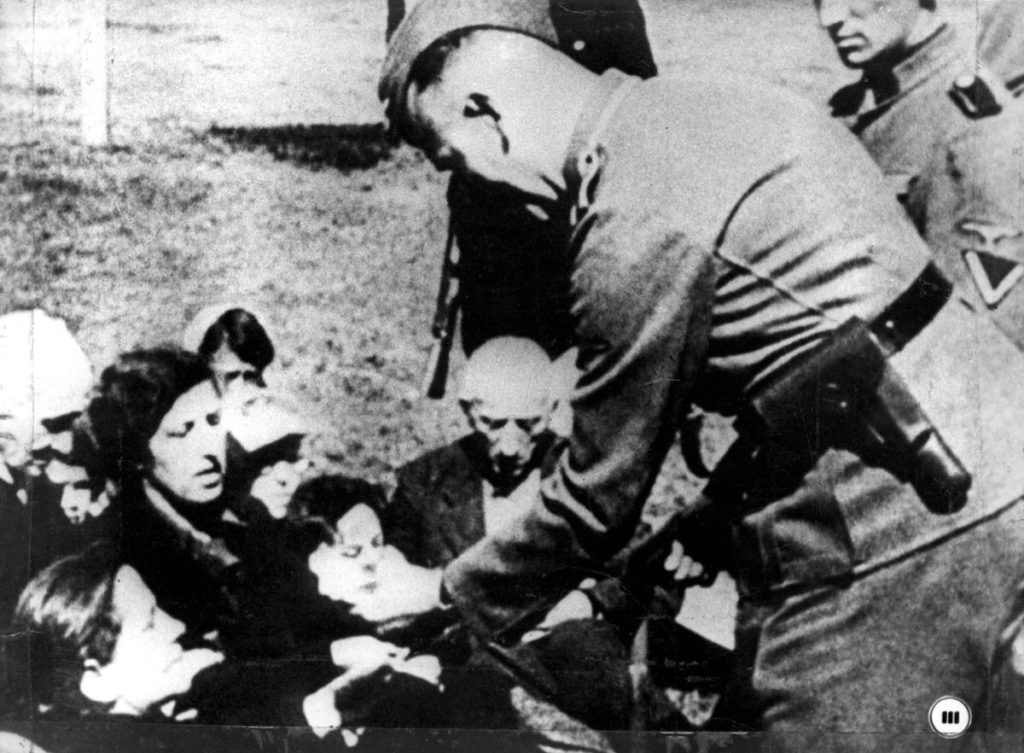
Over the next two days, Sept. 29-30, 1941, police escorted Jews who arrived at the relocation spot to the nearby pits of Babyn Yar for execution. More than 33,000 Jews were executed in 48 hours with thousands more locked up and murdered a month later.
First hand account
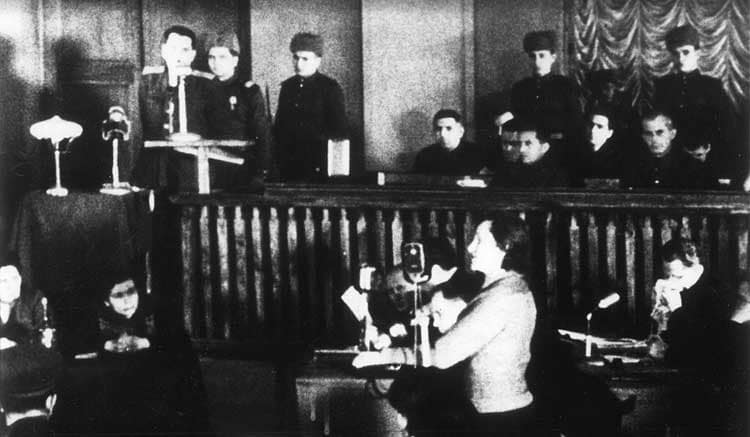
Twenty-nine people did manage to escape and below is testimony given by Dina Pronicheva at a Kyiv war crimes tribunal in 1946.
“My name is Dina, Dina Mironovna Vasserman. I grew up in a poor Jewish family, was raised under Soviet rule in the spirit of internationalism and, thus, it is no wonder that I came to love a Russian boy, Nikolai Pronichev, married him, [and] lived with him in love and happiness. In that way I became Dina Mikhailovna Pronicheva. My [internal] passport identified me as a Russian. We had two children – a boy and a girl…
Hitler’s troops occupied Kiev on September 19, 1941 and from the very first day started to rob and kill Jews… We were living in terror. When I saw the posters on the city’s streets and read the order: “All the Jews of Kiev must gather at Babi Yar,” about which we had no idea, in my heart I sensed trouble… So I dressed my little ones, the younger one [the girl] who was 3 years old and the older one [the boy] – 5, packed their belongings into a small sack, and took my daughter and son to my Russian mother-in-law. Afterwards, I took my sick mother and, following the order, she and I started out on the way to Babi Yar.
Hundreds, no thousands, of Jews were walking the same way. An old Jew with a long white beard walked next to me. He wore a talis [prayer shawl] and tefillin [phylacteries]. He was murmuring quietly. He prayed the same way as my father did when I was a child. Ahead of me a woman with two children in her arms walked along, while the third child clung to her apron-strings… Small children were crying… Russian husbands accompanied their Jewish wives. Russian wives accompanied their Jewish husbands. When we neared Babi Yar, shooting and inhuman cries could be heard… When we entered the gate, we were ordered to hand over [our] documents and valuables, and to take off our clothes. One German approached my mother and tore her gold ring off her finger. Only then did my mother say [to me]: “Dinochka-you are Pronicheva, a Russian. You should save yourself. Run to your little ones. You should live for them.”
But I could not run… How could I leave my mother alone? I hugged her, burst into tears, but I could not leave her.
My mother pushed me away from her, crying: “Go quickly!”
I then approached a table where a fat officer was sitting, showed him my passport, and said quietly: “I am a Russian.”
He looked closely at my passport, but at that moment a policeman came running up and muttered: “Don’t believe her, she is a kike. We know her…”
The German told me to wait and to stand aside.
Each time I saw a new group of men and women, elderly people, and children being forced to take off their clothes. All [of them] were being taken to an open pit where submachine-gunners shot them. Then another group was brought…
With my own eyes I saw this horror. Although I was not standing close to the pit, terrible cries of panic-stricken people and quiet children’s voices calling “Mother, mother…” reached me. The German who ordered me to wait brought me to some superior of his, gave him my passport, and said to him: “his woman says she is a Russian, but a policeman knows that she is a kike.”
The superior took the passport, examined it for a long time, and then muttered: “Dina is not a Russian name. You are a kike. Take her away!”
The policeman ordered me to strip and pushed me to a precipice… But before the shots resounded, apparently out of fear, I fell into the pit. I fell on the [bodies] of those already murdered…. During the first moments I couldn’t grasp anything – either where I was or how I got there… I pretended to be dead…
The shooting was continuing and people kept falling…
Suddenly all became quiet. It was getting dark… I felt we were being covered with earth… When it became dark and silent, literally the silence of death, I opened my eyes and threw the sand off me… I said to myself: “Dina, stand up. Get away. Run from here, your children are waiting for you.” So I stood up and ran, but then I heard a shot and understood that I had been seen. I fell to the ground and remained silent. It was quiet. Still on the ground, I started to move quietly toward the high hill[s] surrounding the pit…
Originally Published Mar 1, 2022 01:04PM EST
